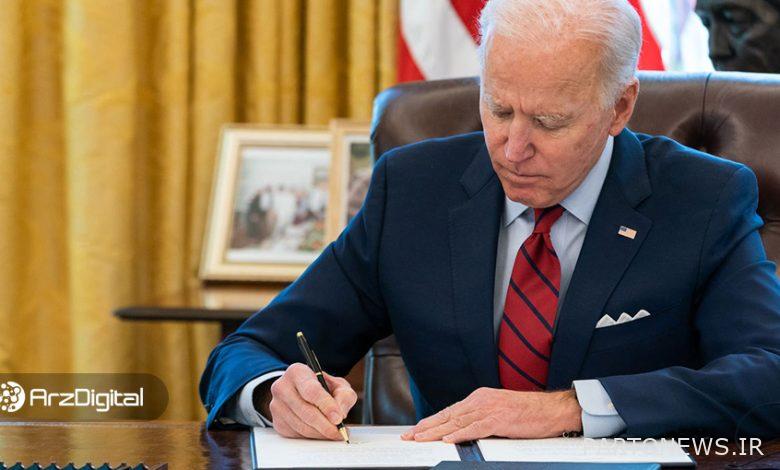Report: Biden is working on an executive order to control the digital currency industry

Recent reports indicate that the Biden government apparently intends to use the executive order to legislate digital currencies. Biden’s goal is said to be to make the digital currency industry more transparent and more oversight.
to the Report Crypto Potito Biden wants to define a legal framework for each area, and this time it seems to be targeting digital currencies directly. The president seems to be seeking an executive order to make the digital currency space more transparent and to have better control over the industry and related activities.
The issuance of an executive order is one of the powers of the President of the United States, with the help of which the government can make a ruling legal, however, if a court finds an executive order illegal, it may be revoked.
The news was first published by Bloomberg, citing personal claims that the media said he was a well-known figure, but preferred not to be named in the report. However, the news was not so surprising, as many experts expected such a move, given recent comments by some cabinet members.
Because Biden is unable to directly enact effective digital currency legislation, he wants to enforce the rules by enforcing the decree, which is one of the political powers of the US president. According to Bloomberg, the executive order initially obliges many government agencies to submit proposals for legislation in this area, depending on the field in which they specialize.
According to Wendy Benjaminson, Bloomberg Deputy Editor-in-Chief of US Government News, the Treasury Department, the Commerce Department, the National Science Foundation, the Financial Times Stock Exchange, the Commodity Futures Trading Commission, the Internal Revenue Service and the US National Security Council They are among the organizations that are subject to this executive order.
Each of these organizations is likely to liaise with the White House and comment on legislation in various areas of the field. Apparently, the government is looking for a way to harmonize the views of different institutions and benefit from them.
How have digital currency activists reacted?
Proponents of blockchain technology differ in their legislation on digital currencies. On the other hand, people like Roger Ver and Ilan Musk, who advocate free market anarchism and privacy in the field of economic activity, believe that digital currencies do not need to be legislated and that government efforts to monitor this area deprive users of their freedom. And ultimately leads to direct control of the people.
Roger Weir, an investor and activist in the digital currency business, said on Twitter a few months ago:
Imagine being brainwashed so much that you believe people are transferring money [خود] They need the permission of others.
On the other hand, pragmatists such as Michael Saylor, Brad Garlinghouse, and influential political figures believe that clearer regulation provides greater legal certainty and confidence for mainstream investment and is more widely welcomed by institutional investors in the market. Leading digital currencies.
Ripple CEO Brad Garlinghouse wrote on Twitter a few months ago:
My main impression of this topic [این است که] Jay Clayto [رئیس سابق کمیسیون بورس آمریکا] It is joining the ranks of those who say that digital currencies lack legal transparency, and that this is undermining innovation in the United States. It is obviously ironic, but [اقدامِ] It is better to be late than not to act.
Both sides of the story have reacted quickly and clearly to this issue. For example, David Gokhstein, founder of the PAC Protocol, said Biden’s move could bring more transparency to the digital currency ecosystem and foster innovation. However, Rick McCracken, in the Cardano Live podcast, called for a reaction from digital currency activists, comparing Biden to Roosevelt’s 1933 executive order. Under a 1933 executive order, the US government banned the use of gold as backing money, and the Treasury Department banned the sale of gold against the dollar.

